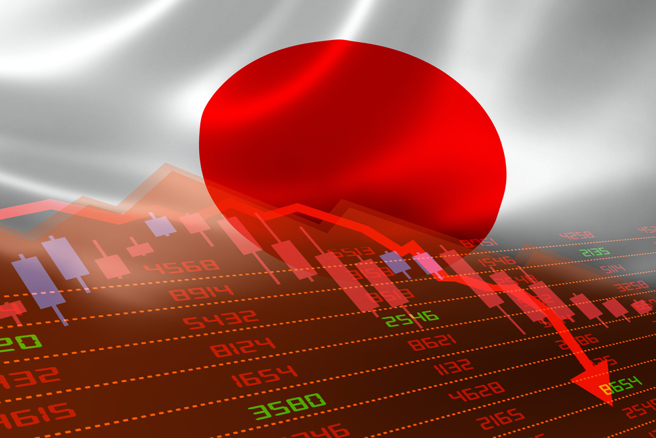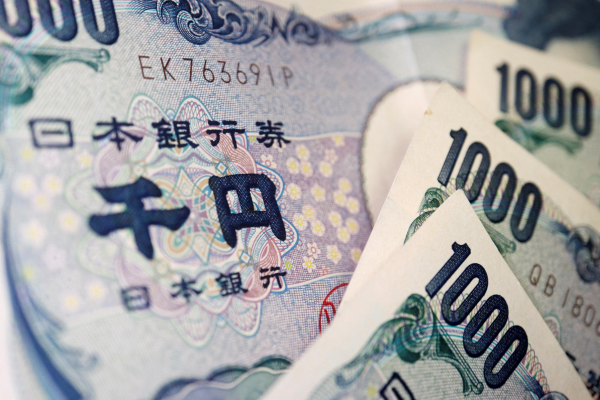
The International Monetary Fund's latest report predicts that Japan's nominal gross domestic product (GDP) will be overtaken by Germany in dollar terms in 2023, slipping from third to fourth place in the world. Meanwhile, the IMF expects India to become the world's fourth-largest economy in 2026, while Japan will slip to fifth between 2026 and 2028.
According to the economic outlook released by the IMF, Japan's nominal GDP in 2023 will be about $4.23 trillion, down 0.2% from 2022. Germany's nominal GDP will grow by 8.4% in 2023, to about $4.43 trillion. In terms of GDP per head, Germany will also be higher than Japan. Germany's per capita GDP is expected to be $52,800, while Japan's per capita GDP is about $34,000.
Japan's Kyodo news agency analyzed that the depreciation of the yen is a major reason for Japan's nominal GDP to be surpassed by Germany this year. The forecast comes as the yen hovers close to the 160 mark against the euro last touched in August 2008 and within striking distance of a 33-year low against the dollar.

Much of the yen's weakness has been caused by differences in monetary policy between central banks - the Federal Reserve and the European Central Bank have aggressively raised interest rates to fight inflation, while the Bank of Japan has stayed in stimulus mode, hoping to boost price growth after years of deflation. Markets expect the Federal Reserve and the European Central Bank to keep interest rates on hold at their upcoming meetings, but borrowing costs to remain higher for longer, which could continue to weigh on the yen. The Bank of Japan meets next week and there is speculation of a possible move on bond yields, but its negative rates are widely expected to end next year.
In addition, price increases also have an impact on nominal GDP (nominal GDP growth minus the inflation rate is the real GDP growth rate). From the perspective of monthly inflation rate, the consumer price index of Japan in 2023 generally rose about 3% year-on-year. But Germany started the year with gains of about 9 percent and has since slowed to about 4 percent in September.
The Japanese press is buzzing about the country's economy. The Nihon Keizai Shimbun newspaper said on the 24th that the IMF's economic outlook for Japan and Germany "reflects the long-term downturn in the Japanese economy." In 2000, Japan's economy was larger than it is today, at about $4.97 trillion, and ranked second in the world. In early 2000, the yen traded at about Y105 to the dollar. At the time, Japan's economy was 2.5 times larger than Germany's and 4.1 times larger than China's. China's economy, which surpassed Japan's in 2010 to become the world's second largest, is expected to be 4.2 times larger by 2023.

Japan is experiencing a long period of low economic growth. The size of a country's economy is closely related to its international voice, and if Japan loses its status as the world's third largest economy, its international presence may further decline. Japan overtook the then Federal Germany in 1968 to become the world's second largest economy, when measured in terms of gross national product (GNP). Ishikawa Tomohisa, an economist at the Japan Research Institute, commented on the social network on the 24th that in the case of low economic growth and the weak yen, Japan was overtaken by Germany to a certain extent is predictable, but when this day really comes, it is still sad.
"Japan's growth potential has indeed fallen behind and remains subdued. We want to get back the ground we have lost in the last 20 or 30 years." When asked about the IMF's forecast, Japan's Minister of Economy, Trade and Industry Yasminoru Nishimura responded on the 24th.

報告顯示,中國電力投資加速增長,預計2024年電網基建投資將超過5300億元。
近日,市場迎來了一則引人注目的消息:工業巨頭3M公司(MMM.N)在本周五公布了其季度業績報告,隨後股價飆升至近兩年來的
最近,外媒給OpenAI算了筆賬,今年可能要血虧50億美元。
近日,巴黎奧運會和世界鐵人三項協會聯合發布了一項重大決定,宣布因塞納河水質污染問題,原定於近期進行的奧運會鐵人三項首次下
當地時間7月18日,法國巴黎發生了一起令人震驚的持刀襲警事件。
近期,一則重大消息在國際舞臺上引起軒然大波,馬來西亞宣布加入金磚國家。
調查發現,互聯網和智能手機的使用幹擾了韓國近五分之一學生的生活。